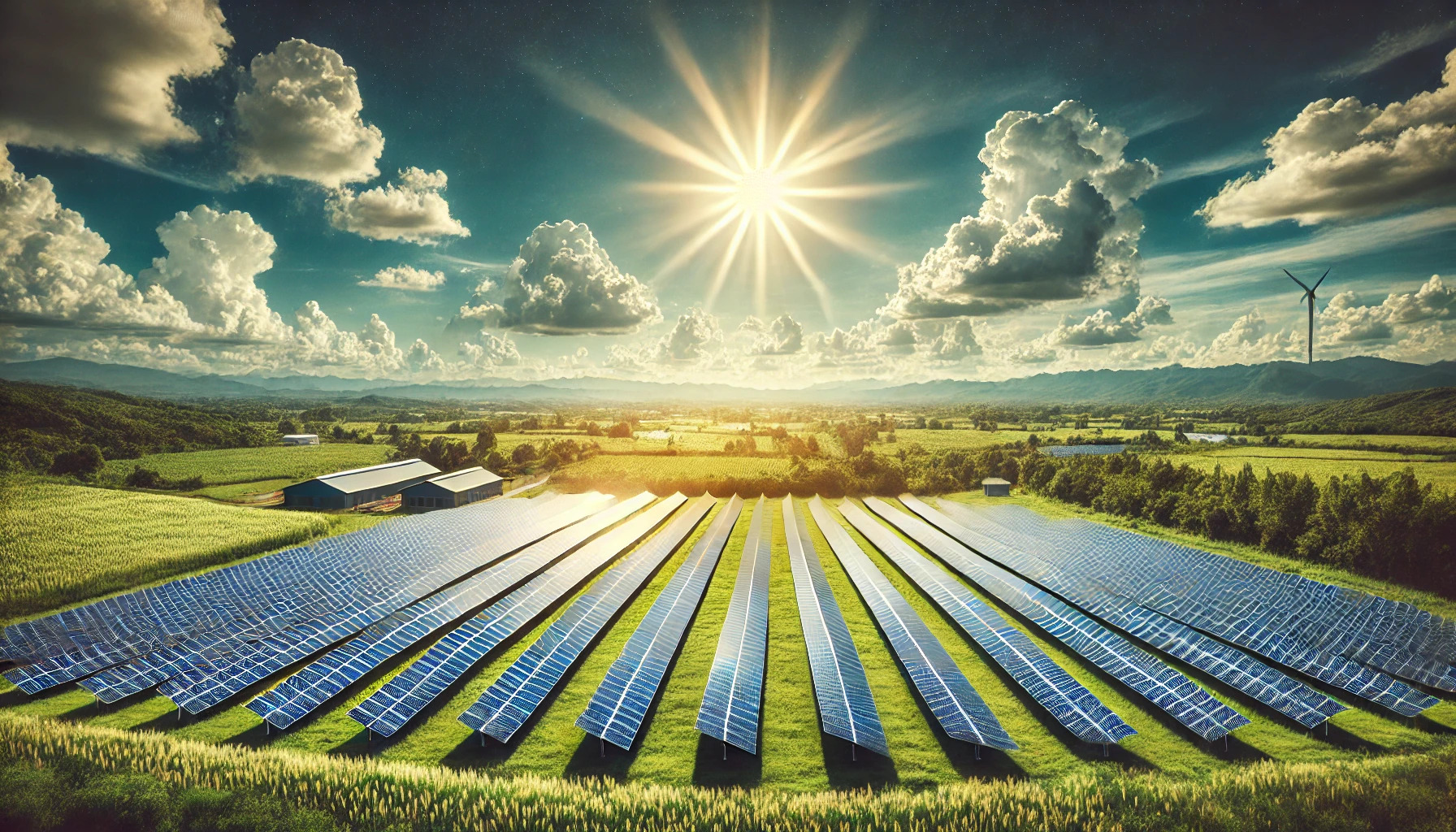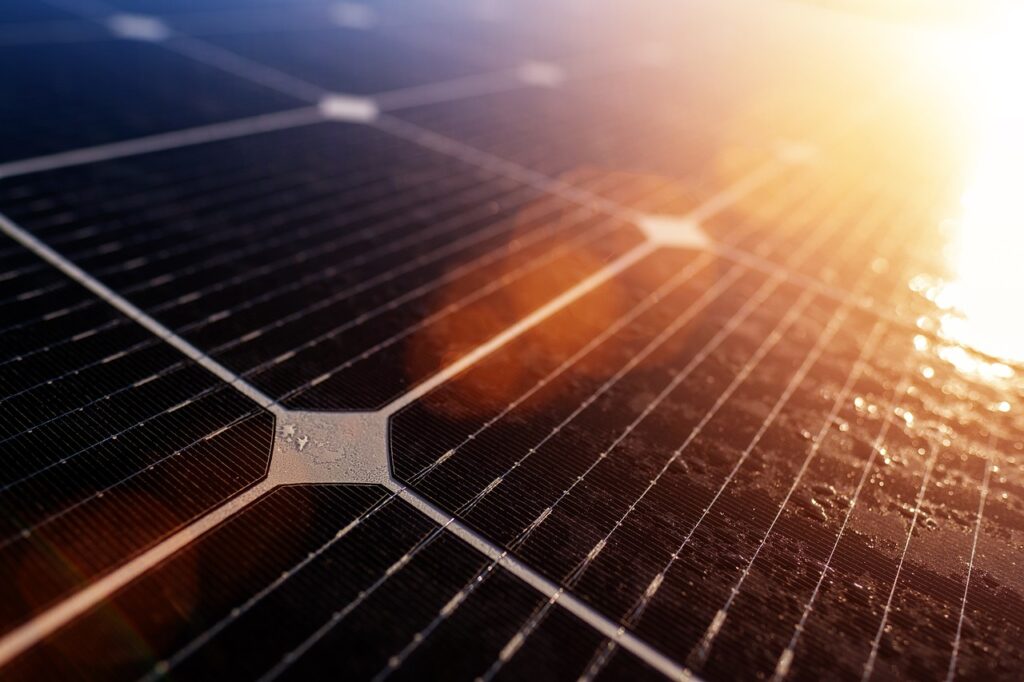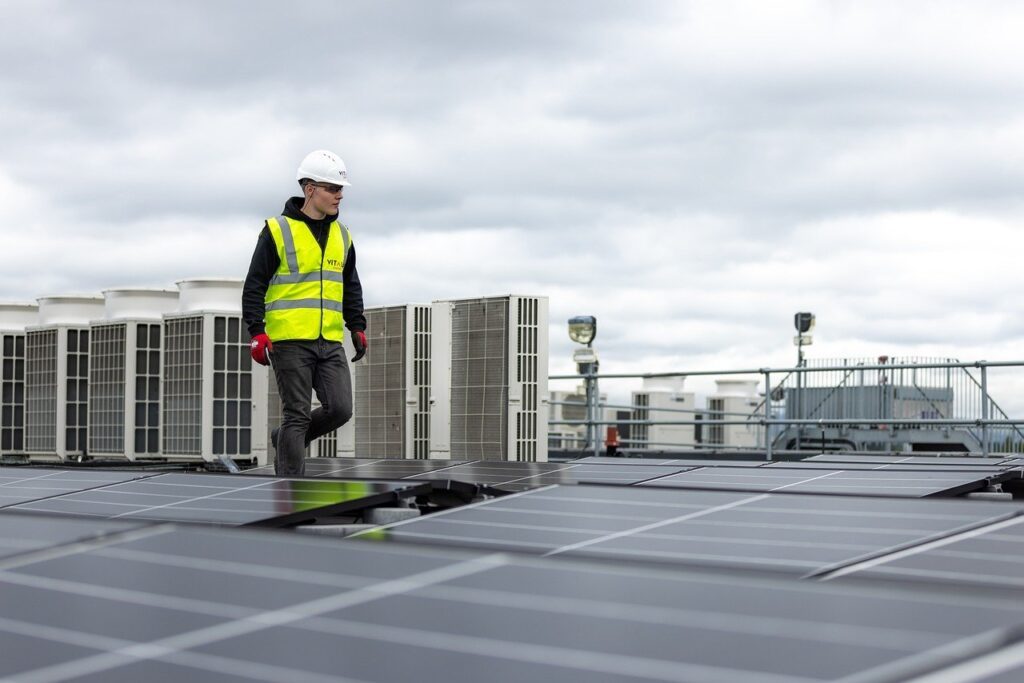The Definition of Solar Energy
The world is shifting towards renewable energy sources.
We’re not far from a future where solar energy will be the main energy source.
The reason is simple, they offer long-term savings that make no one else want traditional energy types.
In this article, we will explore:
- What are solar panels
- How does it work
- Vantages and disadvantages
- Types of solar systems
- List of essential solar energy products
- Solar companies (how to choose the right one)
What Are Solar Panels?

Thanks to Alexandre-Edmond Becquerel, today we can save big with electricity, since he discovered the photovoltaic effect.
Also thanks to Charles Fritts, who created the first commercial solar panel.
They are basically devices that convert sunlight into electricity.
How Does Solar Energy Work?
Solar panels are composed of photovoltaic (PV) cells made from semiconductor materials like silicon.
When sunlight hits these cells, it knocks electrons loose from their atoms, generating a flow of electricity.
This process is known as the photovoltaic effect.

Solar Energy Advantages and Disadvantages
Advantages:
- Savings Electricity Bills: Generating your own electricity will significantly lower your utility bills.
- Low Maintenance: Once installed, solar panels require minimal maintenance (once a year).
- Environmental Friendly: Solar energy production does not produce greenhouse gases, reducing your carbon footprint.
Disadvantages:
- Initial Cost: The upfront cost of purchasing and installing solar panels can be high (between 15k to 20k).
- Sun/Nice Weather Dependency: Solar energy requires sun, which means that in cloudy or rainy seasons, it will have less storage. So if you don’t have much sun in your area, might not be a good idea. Heavy snow will also block the sun exposure.
- Space Requirements: You will need a large space to install enough panels to meet your energy needs. This means that if you live in an apartment, it won’t be possible (but you can still make use of solar energy in other ways, we explain more here).

Different Solar Energy Systems – definition of solar energy
- Photovoltaic (PV) Systems: Photovoltaic (PV) systems convert sunlight directly into electricity using solar cells made of semiconductor materials like silicon.
- Solar Thermal Systems: Solar thermal systems use sunlight to produce heat, which can be used for water heating, space heating, or industrial processes.
- Community Solar Systems: These are shared solar arrays that provide power to multiple homes or businesses. Participants in community solar programs can enjoy the benefits of solar energy without installing their own systems.
Essential Solar Panel Products
If you want to benefit from solar energy and don’t know where to start, here are some essential solar panel products available on Amazon:
Solar Charger Power Bank

Portable Solar Power Station for Camping

Solar Light Outdoor Waterproof

Solar Garden Lights

(ok, I admit, this is not that essential, but look how cute)
Portable and Foldable Solar Panels

Solar Kit

3 Steps to Choose the Right Solar Company
- A Reliable Company Will Guide You: A reliable company will guide you through the entire process, from system design to installation and maintenance.
- Good quality solar equipment: Good quality equipment is crucial for an efficient, durable solar system. Choose a company using reputable brands for panels and inverters, which generate more energy and require less maintenance, saving you money over time.
- Longevity in business: Preferably choose one that has been in business for more than 5 years. Solars are long-term business, the warranties normally last for 10 years, so if there was any problem in the first 5 years of other users, you will know from other customers’ reviews.

Conclusion
Solar energy is one of the best products for those looking for savings and or off-grid living.
By understanding the definition of solar energy, you can make informed decisions about integrating solar panels into your life.
And if you have come to this part of the article, congratulations! Cause today you’re contributing to a greener tomorrow.
